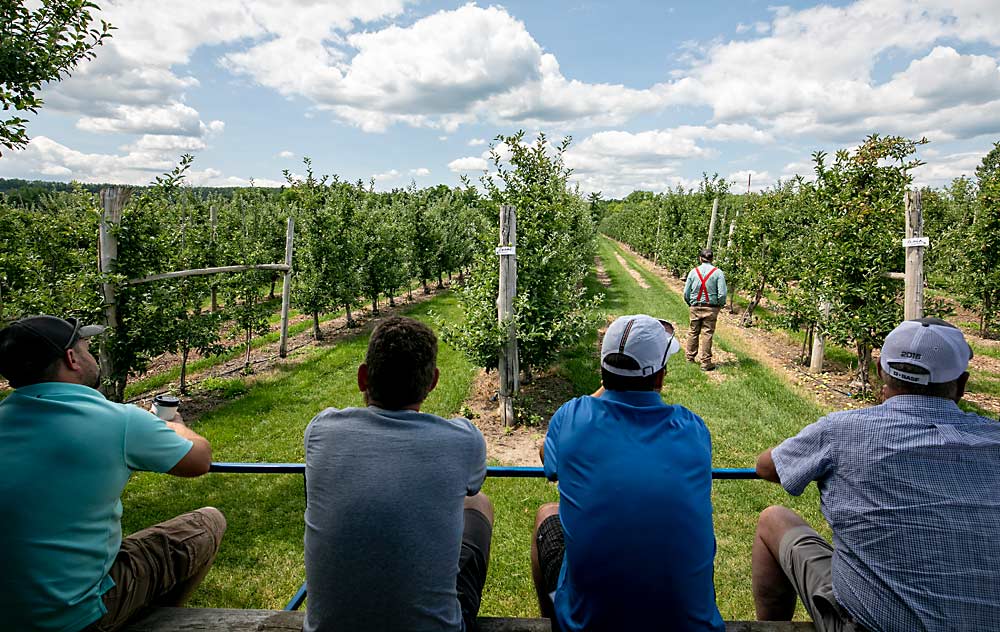
Agritainment farms primarily sell experiences, not apples, and embracing that perspective has turned Chudleigh’s Farm into a direct-sale powerhouse. The customer-experience focus drives just about everything at this sprawling, modern, multigenerational farm about an hour from Toronto.
The farm welcomes about 8,000 visitors a day from August to October. Owner Tom Chudleigh told the 2019 International Fruit Tree Association Summer Study Tour attendees that catering to those customers every day requires a staff of more than 100.
“Remember this is entertainment,” Chudleigh said. “Even though we’re dispatching apples, we’re entertaining people. It’s a big difference from a standard farm.”
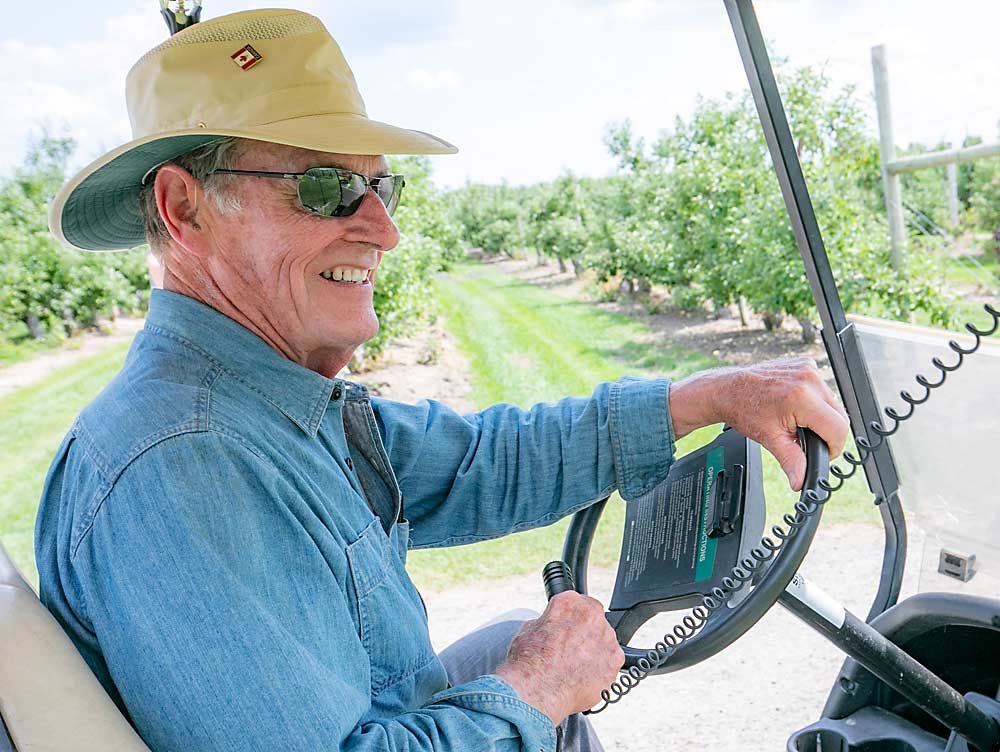
Those differences are clear: The farm design blends modern horticultural approaches with an eye for customer needs. And what the customer needs is space.
“Our spacings are probably a little wider than you’re used to in a slender spindle system,” Chudleigh said to the wide-eyed IFTA group standing in fairway-like green spaces between tree rows. “But when we have as many people picking as we do, we can’t see any grass down the rows. It’s solid people for three rows.”
Since the mid-1970s, the 100-acre farm has modernized its apple blocks from free-standing trees into modern high-density fruiting wall systems, with a heavy emphasis on experience and efficiency, by expanding rows to 14 feet apart.
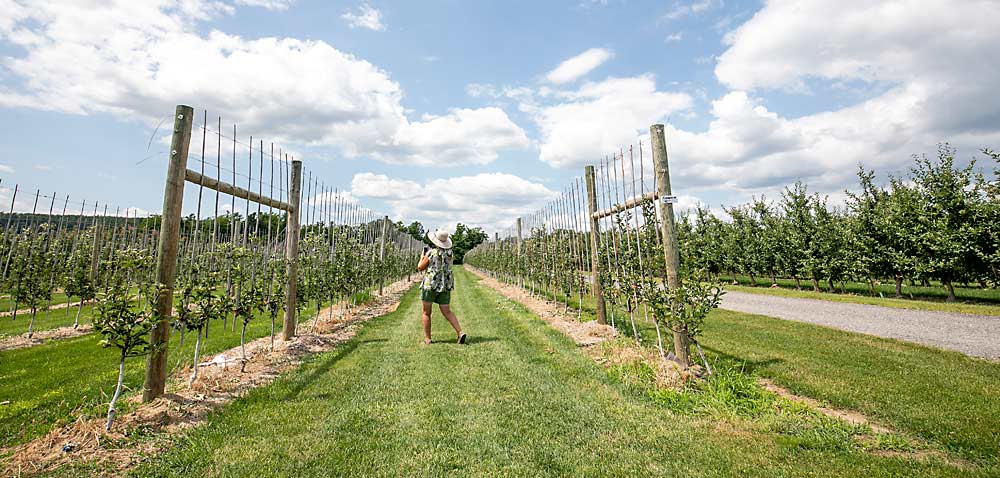
“We have so many people some days that people are packed in too tight and they don’t like it. They can’t get past each other,” Chudleigh said. “We’ll get our efficiency out of price-per-pound,” after customers easily navigate the farm.
To get into the orchard during harvest, customers pay a $15 entry fee for the farm experience that includes a wagon ride, petting farm, play structures with adult-sized slides, and lots of room to play. Apples are purchased by the bag, small or large — no scales necessary.
“We want it to feel like grandpa’s backyard,” said Chudleigh’s son, Scott Chudleigh, who, along with brother Dean Chudleigh, manages the marketing side of the farm and the family’s wholesale pie business. “No lines, no instructions, just space for kids to run and jump and play.”
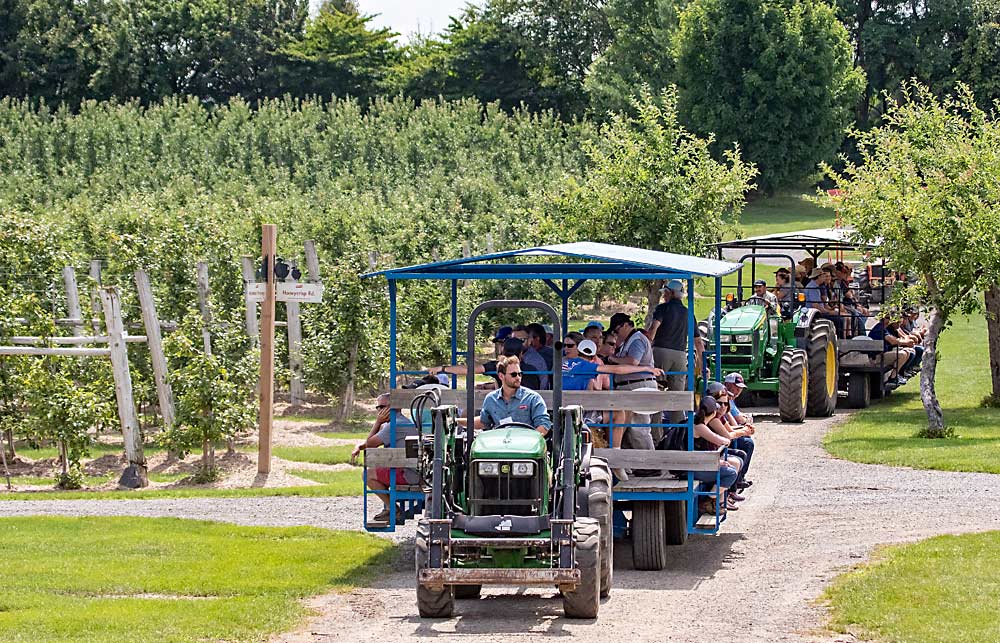
Rows upon rows of clear pathways, custom-made people-haulers, branded signage and fast, high-quality lawn mowers help direct foot traffic in and out of the farm. Think of a golf course with high-density apple systems.
“We’re in the golf club (type) business in that we want a real nice, thick and heavy orchard grass in the rows for customers,” Chudleigh said.
Adopting fruiting-wall systems both improves fruit quality and helps the customers pick.
“If you have a nice 3- to 3.5-inch apple on that tree and they’ve got their child there to show them what an apple looks like on a tree, you couldn’t find a picker who would pick your fruit more carefully than they will,” he said. “Customers are very, very careful with the trees.”
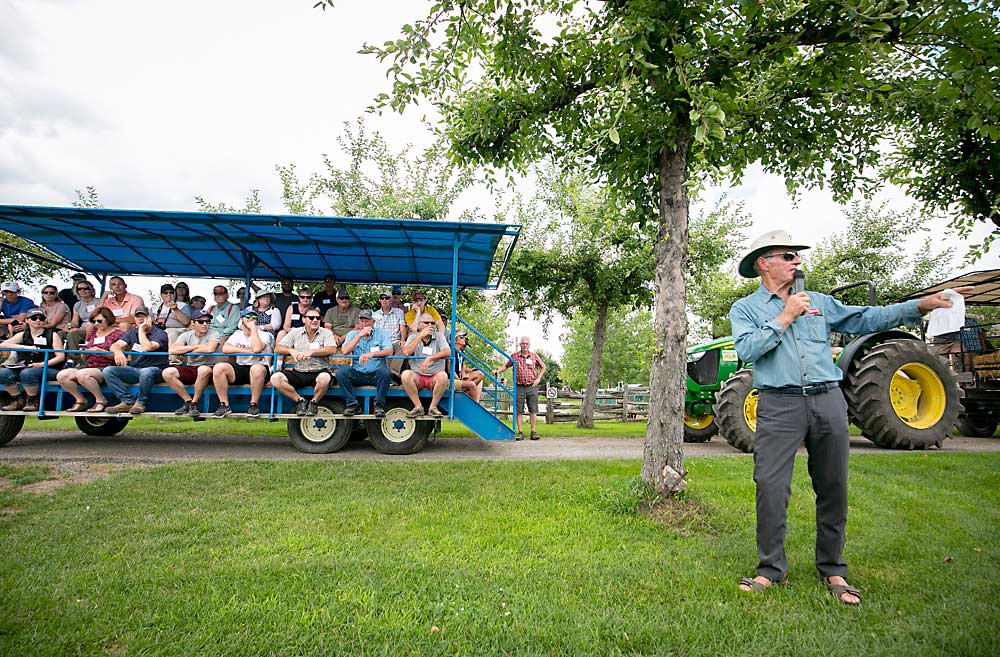
Building blocks
Chudleigh’s farm manager, Riley Bruce, said future plantings “will be planted about 13.5 to 14 feet wide, depending on how many rows we can squeeze into the area, and they’ll all be set at 30 inches between trees.” Those new plantings will primarily consist of Fuji, Gala, Ambrosia and Honeycrisp.
Chudleigh also recommended one particular variety for direct-sale growers: Sunrise. The apple was bred by the Summerland Research Station in British Columbia in the 1990s and, although it doesn’t store well, the sweet summer apple is popular at pick-your-own farms.
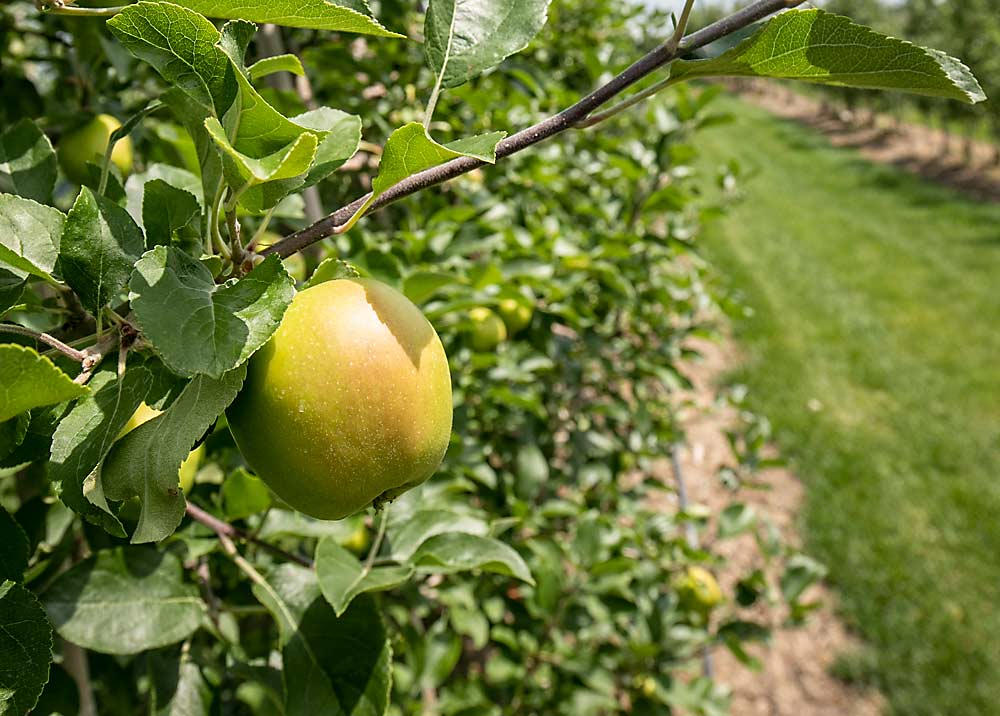
“Sunrise variety is worth looking into. It’s an end-of-August apple that’s crispy, juicy and it brings customers in at that time-window just for this apple,” he said. “When it’s ripe it does look like a sunrise if you can imagine reds, oranges and yellows blending together — it’s a beautiful-looking apple and, against green foliage, people can’t resist picking them.”
Bruce said they have two different Sunrise blocks: One where they apply ReTain (aminoethoxyvinylglycine) and one where they don’t.
“The one with ReTain is planted 18 inches apart, so the trees are tight compared to the other, which has large trees 5 feet apart,” Bruce said. “These high-density plantings, with ReTain, produce larger apples, better color and a higher volume to the untreated older spacing.”
And if customers wonder about sprays, Bruce said: “If they ask if our apples are organic, we say, ‘No. We spray them when it’s necessary.’”
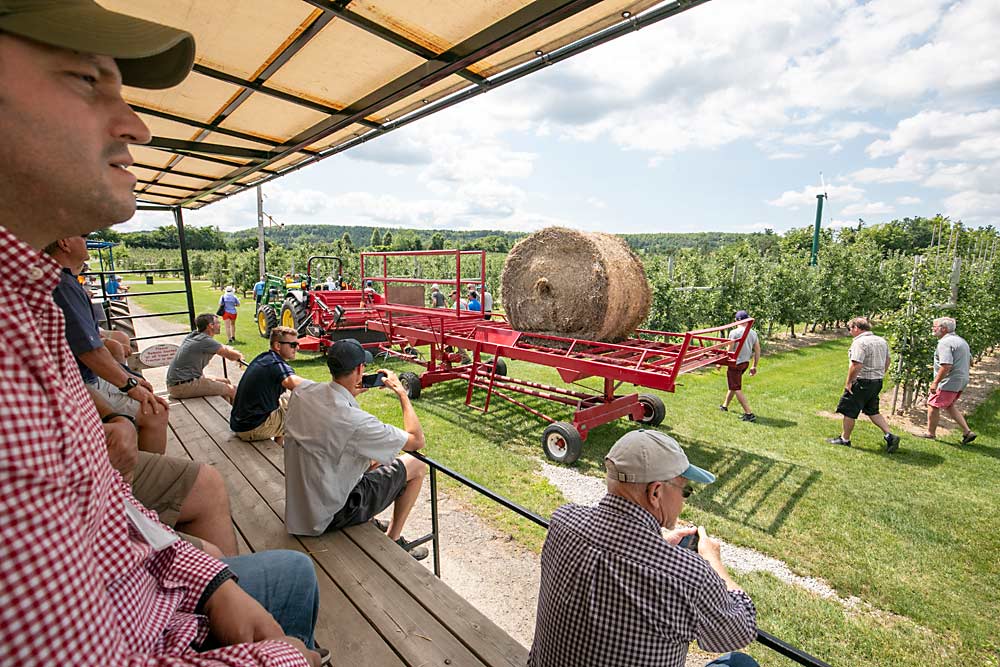
Calculated risk-taking
Improving the farm’s landscape and polishing horticultural techniques to highlight excellent fruit has been an ongoing process that may look easy, however Chudleigh said there are risks associated with hitting through narrow harvest windows.
“We do gamble quite a bit on the harvest time, and have for years, and we want the apples dead-right sweet without any starchiness at all,” he said. “It is risky leaving them on as long as we do. We have been bitten before when a weather pattern comes through that limits the crowd. But when you watch somebody bite into a fully ripe McIntosh apple, you’ll know immediately if we succeeded.” •
—by TJ Mullinax






Leave A Comment